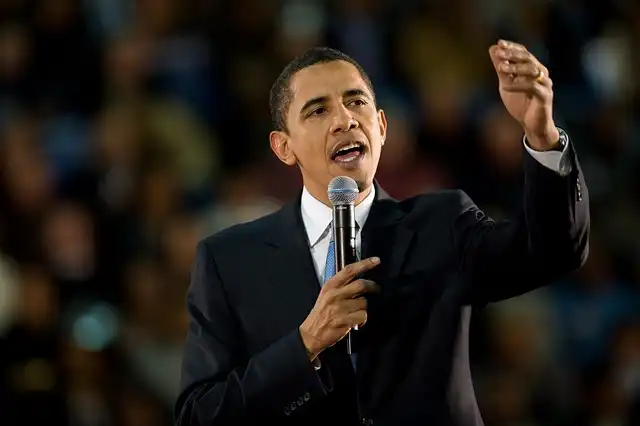Public Servants: Balancing Freedom and Public Good

Public servants navigate the tension between individual freedoms and public safety, balancing personal liberties with the greater good. This challenging task deserves appreciation beyond special events.
Which’s not a simple equilibrium to strike, particularly throughout things like the assault on Iran’s nuclear websites, however it is one that is also playing out vaguely every day on the much less significant cutting edge of public service, where individual, greatly unsung public servants– everybody from knowledge experts, park rangers and nurses, to physicians, ICE officers and even building and food inspectors– have to pick in between their (and their fellow-countrymans’) specific liberties and the broader public passions that they are testified protect and safeguard.
Freedom vs. Public Good
Public slaves have to frequently browse and apply the federal government’s equilibrium of individual freedom and public safety. Our specific liberties have actually to be stabilized by the higher public good, and frontline public servants are stuck with doing the harmonizing. That mystery, that “love-hate” connection, is also more pertinent on the frontlines of public service, insofar as it impacts the thankless daily work of our public slaves. Its relevance is highlighted by today’s headlines, and it is one that is taking place every day on the front lines of government, where private public slaves have to locate that complicated balance in between the private flexibilities afforded them and their next-door neighbors (including the freedom from harm), and the public passions that those public servants are additionally sworn to protect.
That was not a simple point to ask of civil slaves then, but it seems that it is also harder to ask of them now. Yet we have to … and we have to be grateful that they agree to address that phone call. Its value is underscored by today’s headlines, and it is one that is occurring daily on the cutting edge of government, where private public servants have to find that difficult equilibrium between the specific flexibilities afforded them and their next-door neighbors (including the freedom from injury), and the public interests that those public slaves are likewise testified secure.
So, the “love-hate” partnership that we Americans have with our federal governments is specifically relevant now, after the “glow” of PSRW and the Sammies have subsided. For our country’s public servants, that means that they’re all too often “damned if they do and damned if they do not,” and for that, we owe them an extra dosage of appreciation … always!
Love-Hate Relationship with Government
I saw the exact same point play out in our Knowledge Neighborhood, with analysts attempting to stabilize our country’s national safety and security passions with their own self-preservation … as manifested by what they thought their elected superiors and appointees wanted to hear. That’s an option that no person must have to make, after that or currently, and we need to do every little thing we can to protect those individual civil servants from having to make it.
Intended to strike a balance between the needs of a specific taxpayer– that’s the “service to each” component– with the laws of the lots of, as mirrored in the far much more basic tax obligation code established by their chosen agents in Congress, that is the important question. It’s a balance, and it can be strained at times. It’s up to frontline civil servants to find it.
If the current celebrations in Washington, D.C.– like Public Service Recognition Week and the Collaboration for Public Service’s annual Sammies awards– have actually advised us of anything, it’s that we should be thanking our public servants (both present, and indeed, former) all year long, not recently … when it’s stylish, and we can all get our images taken in our tuxes and official gowns doing so.
Therefore, it is no overestimation to recommend that the United States was developed partly to strike a sometimes-tense equilibrium in between individual freedoms on one hand, and the higher public good on the other. Besides, flexibility is never complimentary; it calls for compromise, something we found out (a minimum of theoretically) in secondary school civics classes. Regrettably, “compromise” has actually become an unclean word, so a lot so that I was when implicated of seeking one (by a staffer for a legislator) as if it were a pejorative.
Ronald Sanders is a former profession elderly federal exec of more than 20 years. He is likewise an Other of the National Academy of Public Management and a participant of the American Culture for Public Management’s National Council. He has actually acted as chair of the Federal Income Council, associate director of OPM, DOD Supervisor of Private Citizen Employee Policy, Internal Revenue Service Chief Human Resources Officer, and the Knowledge Area’s first Partner Director of National Knowledge for Human Being Resources.
But that paradox, that “love-hate” relationship, is even more appropriate on the frontlines of civil service, insofar as it affects the thankless day-to-day job of our public servants. Initially, while it might be “the government” that our fellow-countrymans both love and hate, that gestalt materializes itself in the communications, infrequent or otherwise, that they have with those front-line public slaves, including (nowadays) those who are virtual. Offered the economic and economic pressures that every American faces nowadays, those communications can be testy and tense– just consider those who call “the government” to demand to understand the condition of their still-not-received tax obligation refunds, Social Safety and security checks or FEMA aid and obtain what they perceive to be the runaround.
COMMENTARY|Public slaves need to regularly navigate and execute the federal government’s equilibrium of private liberty and public safety and security. The acknowledgment of that tough work should not booked just for unique events.
To ensure, one might argue that the exact same is true for American citizens of all stripes, not just public slaves. They also have to select between their personal safety (which of their fellow-countrymans) and their specific freedoms. And it’s more complicated by social media, consisting of the nefarious Russian kind, that intentionally clouds what’s real and what isn’t.
You see, we Americans commonly have a “love-hate” connection with our national federal government, therefore as well do the general public slaves that benefit us, whether in uniform and otherwise. They really manifest that connection … and are embeded the middle of all that. On the one hand, we (and they) prize the individual flexibilities that are assured by our Constitution and Expense of Legal rights, and a number of us may just desire our federal government to leave us alone. Paradoxically, we also want our federal government to protect us from injury, specifically in times of phenomenal situation … like currently.
I saw that first-hand way back in the late 1990’s, when I was the first Principal human resources Policeman for the internal revenue service. Trying to get over a background (indeed, a way of thinking) of taxpayer scare tactics, the Solution was under a legislative required to become a lot more consumer friendly. That’s challenging for a tax collection company, however it’s everything about equilibrium, and led by then-Commissioner Charles Rossotti and others, giving “service per, [and] service to all” became our new concept.
That testiness might be native to the island, a paradoxical item of simply being an American, and that my pals is what makes American public servants various. Nearly without exemption, they have responded to that paradoxical telephone call, sometimes at wonderful individual threat, and in so doing, they have actually provided us yet one more reason for revealing our appreciation to them, not just during Public Solution Acknowledgment Week or after the Sammies, but always!
The Role of Frontline Public Servants
That needs to stop. A lot more notably, our front-line public slaves– those who find themselves in the middle of that dispute, attempting to strike that soaring equilibrium whether they understand (or like) it or not– are the federal government, and that is a part of their work that remains unappreciated and especially unsung.
This mystery returns to our beginning, when Publius discussed the nature of our new democracy in the Federalist papers. Those Creators comprehended that the acts of private citizens, all perfectly and directly logical, can still have an unhealthy affect jointly, which led them to develop a system of equilibriums and checks developed to suppress and transport the fundamental unwanteds of those specific passions and their factions. They likewise predicted tension in between the private and the collective, albeit generally a healthy and balanced one, yet as we quick onward to today– what with the “No Kings” rallies and so forth– we see that tension playing out a lot more strongly on our extremely roads.
He is additionally a Fellow of the National Academy of Public Administration and a participant of the American Culture for Public Management’s National Council.
As currently, it comes down to the means each public servant attempts to strike that equilibrium in between specific liberties, including their very own personal security, and cumulative obligation … as they simply try to do their jobs.
Balancing Individual Liberties
That is not a simple choice to make nowadays, whether you’re a civil servant or otherwise, and as our fellow citizens fight with it, they manifest and operationalize this “love-hate” relationship with our federal government. They as well worry about that “federal government” infringing on their legal rights (viewed, editorialized or otherwise) and their liberties.
In enhancement to saying thanks to public employees for all the often-distasteful points that they do all the time, I assume we also need to thank them for trying to assist us find that equilibrium … in between our deep-rooted American loathing towards “government” on one hand, and the need, in some cases reluctantly recognized, for what it does on the various other.
Our individual freedoms have to be stabilized by the better public good, and frontline public servants are stuck to doing the harmonizing. And because respect, they do not get to be as “empowered” as their counterparts in the private sector, as encouraging as that might be. Instead, they are duty-bound to do the bidding process of “We the People.” That makes the jobs of civil servants very, really hard, and it’s something we need to never ever, ever before forget!
Former U.S. Company for International Advancement workers ended after the Trump administration took down the agency gather their individual valuables at the USAID headquarters on Feb. 27, 2025 in Washington, D.C.
Chip Somodevilla/ Getty Images
2 coalition government
3 collective responsibility
4 individual freedom
5 public safety
6 public servants
« DHS Intelligence Office: Staff Cuts & ControversySupreme Court OKs Trump’s Federal Workforce Reduction Plans »
